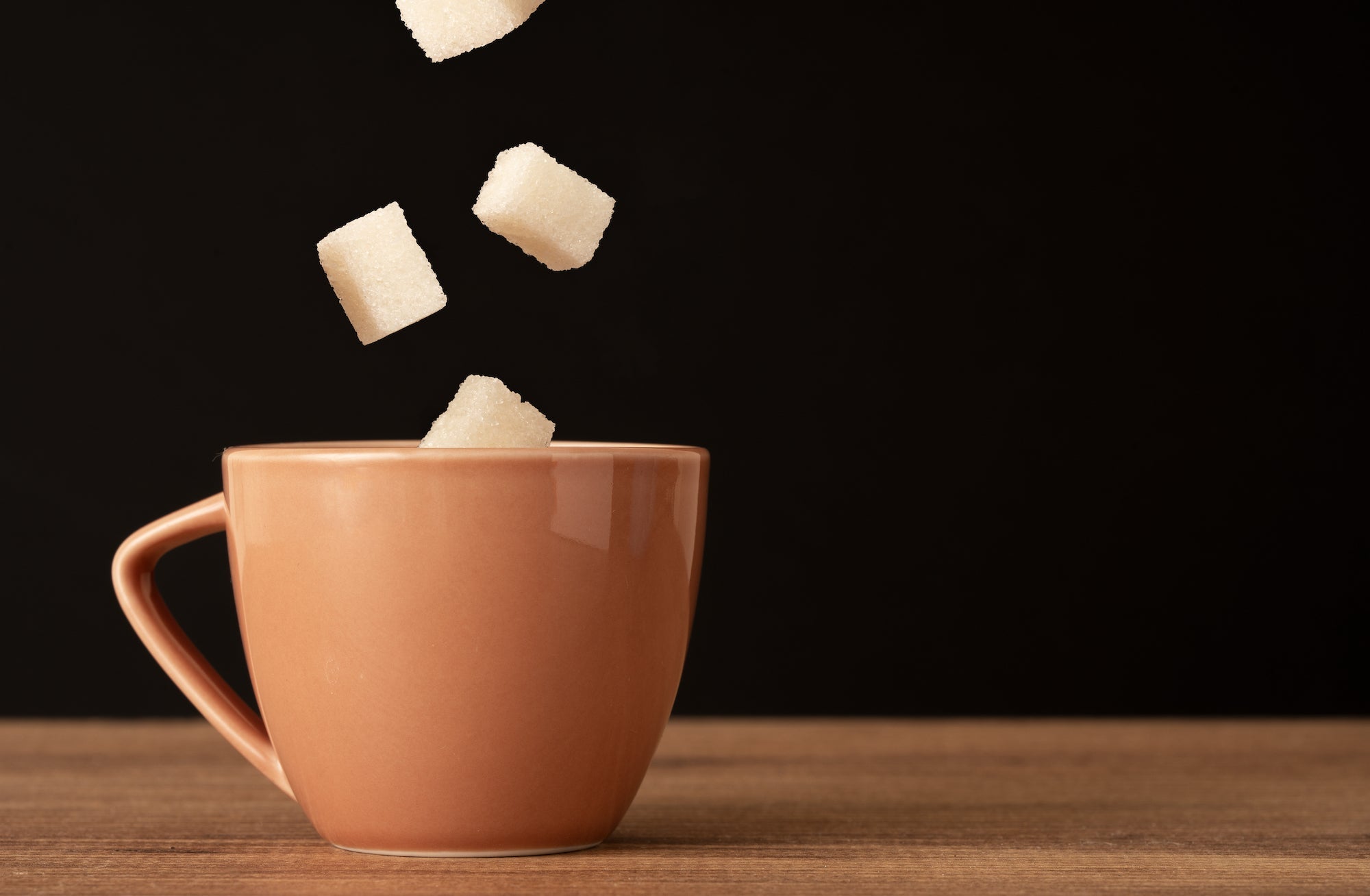As the sun peeks over the horizon, millions of people across the globe reach for their morning cup of solace: some go for coffee, others for tea. But is one beverage truly superior to kickstart your day?
While both coffee and tea bring their own set of benefits and pleasures to the morning table, it’s clear that one reigns supreme. Which one? Read on to find out.
Coffee vs. Tea: What Are They
Before diving into the comparison, let’s review what coffee and tea fundamentally are.
Coffee originates from the seeds of berries found in certain Coffea species of plants. These seeds, commonly known as coffee beans, are roasted before being ground and brewed.
Tea, on the other hand, is made by steeping processed leaves of the tea bush (Camellia sinensis) in hot water for several minutes. The four basic types of true tea—black, green, oolong, and white—come from this single species of plant. In addition to these, there are also many herbal teas, which are not technically “teas” in the botanical sense, as they are made from a variety of herbs, fruits, and spices rather than the Camellia sinensis plant.
In the following sections, we’ll compare the health benefits and effects of coffee vs. those of tea.
Caffeine Content
Caffeine is a natural stimulant found in coffee and tea. Its primary biological effect is to block the action of adenosine, a neurotransmitter involved in sleep and relaxation. By interfering with adenosine, caffeine effectively stimulates the release of other neurotransmitters like dopamine and norepinephrine, leading to increased alertness, focus, and energy.
Caffeine not only helps with alertness, but also supports:
- Mood[*]
- Metabolism[*]
- Heart health[*]
- Reduced risk of certain neurodegenerative disorders, including Alzheimer’s disease and Parkinson’s disease[*][*]
Most studies show that people receive these benefits when drinking 2-4 cups of coffee daily. That’s about 200-400 mg of caffeine per day.
Coffee unequivocally packs a more significant caffeine punch than tea. A standard 8-ounce cup of brewed coffee contains 95 milligrams of caffeine. High-caffeine coffees contain even more—200+ mg per cup.
Tea offers a more moderate caffeine content, typically 20-60 mg per cup, depending on the type and brewing time. While it contains enough caffeine to offer a gentle lift, it usually falls short of providing the robust energy surge many people seek in the morning. Plus, you’d likely have to drink a lot of tea to experience the other caffeine-mediated benefits, like mood support and neuroprotective benefits.
✔️Coffee takes the win for this round.
Antioxidant Content
Antioxidants are beneficial substances that safeguard your body against free radicals, unstable atoms that can cause oxidative stress. Over time, this oxidative stress can damage cells and increase the risk of chronic diseases such as heart disease and cancer. A diet rich in antioxidants may help mitigate these risks.
Both coffee and tea are rich in antioxidants, primarily polyphenols. The main antioxidant in coffee is chlorogenic acid, while theaflavins, thearubigins, and catechins are the primary ones in black tea. And green tea contains epigallocatechin-3-gallate (EGCG), a type of catechin (antioxidant).
A 2013 research review of coffee, tea, and alcoholic beverages like red wine notes that espresso has the most antioxidant power, but another 2022 comparison study of similar beverages suggests green tea wins that contest.[*][*]
✔️It looks like this round is a tie.
Disease Prevention
When it comes to disease prevention, there’s some overlap in the diseases these beverages may help fend off. However, they also offer distinct advantages that set them apart.
Various studies indicate that regular coffee consumption can lead to a reduced risk of several chronic diseases:
- Heart disease: A review of studies found that drinking 3-5 cups of coffee daily was associated with a 15% reduced risk of heart disease.[*]
- Neurodegenerative diseases: In one study, drinking 3-5 cups of coffee daily during mid-life was associated with a 65% decreased risk of dementia and Alzheimer’s disease later in life.[*] And a review of 13 studies found that people who regularly consumed caffeine had a significantly lower risk of developing Parkinson’s disease. What’s more, caffeine consumption was found to slow the progression of Parkinson’s disease over time.[*]
- Liver diseases: Drinking one cup of coffee daily has been linked to a 15% lower risk of death from chronic liver disease, while drinking four cups daily was linked to a 71% lower risk.[*]
- Cancer: 59 studies across 40 cohorts showed that regular coffee drinkers had a 13% lower risk of developing various types of cancer than seldom or never drinkers.[*]
- Type 2 diabetes: A meta-analysis involving more than 1 million people found that those who consumed up to four cups of coffee daily had a 25% lower risk of developing diabetes than those who drank little or no coffee.[*]
- Weight loss: Due to its stimulant effects on the central nervous system, caffeine has the potential to boost metabolism by as much as 11% and enhance fat burning by up to 13%.[*][*][*]
Tea, particularly green tea, is often cited for its rich catechin content, including the powerful EGCG, which has its own set of disease-preventing properties:
- Heart disease: A review of studies suggests that regularly drinking green tea could lower many risk factors of heart disease, such as blood pressure, cholesterol, and lipids.[*] But there’s still a lack of consistent, long-term evidence in human clinical trials able to show cause and effect.[*]
- Blood sugar control: A meta-analysis of randomized trials found that green tea could reduce blood sugar levels.[*] But other studies have found no clear link between tea and diabetes risk.[*]
- Alzheimer’s disease: A 2020 study showed that green tea consumption was linked with lower levels of certain markers related to Alzheimer’s disease.[*] But a 2023 study found that drinking too much of any type of tea (13 cups or more daily) could increase Alzheimer’s risk.[*]
✔️All in all, coffee takes the win for disease prevention.
Coffee vs. Tea: Which Comes Out on Top?
While both coffee and tea contain antioxidants and offer a range of health benefits, coffee appears to be the more powerful disease-fighting contender. Plus, it provides an energy boost that tea simply can’t match. However, it’s important to acknowledge that some people experience side effects from coffee, including jitters, crashes, and disrupted sleep.
If you’re looking to enjoy the best of both worlds—sustained energy without the jitters—consider IQJOE. This innovative instant coffee blend combines Brazilian coffee with magnesium L-threonate and lion’s mane mushroom. These additional ingredients not only support cognition and mood, but also mitigate the jittery side effects of drinking coffee.
☕️Pick from these delicious flavors: Original Black, Vanilla Spice, Toasted Hazelnut, and Caffè Mocha. Or try our IQJOE Variety Pack to find your favorites!
So, as the sun rises on a new day, why settle for anything less than the best? With IQJOE, you don’t have to compromise—embrace a morning routine that energizes both your body and mind.
Written by Katie Koschalk, a health and wellness writer, certified holistic nutritionist, and certified personal trainer based in California.


